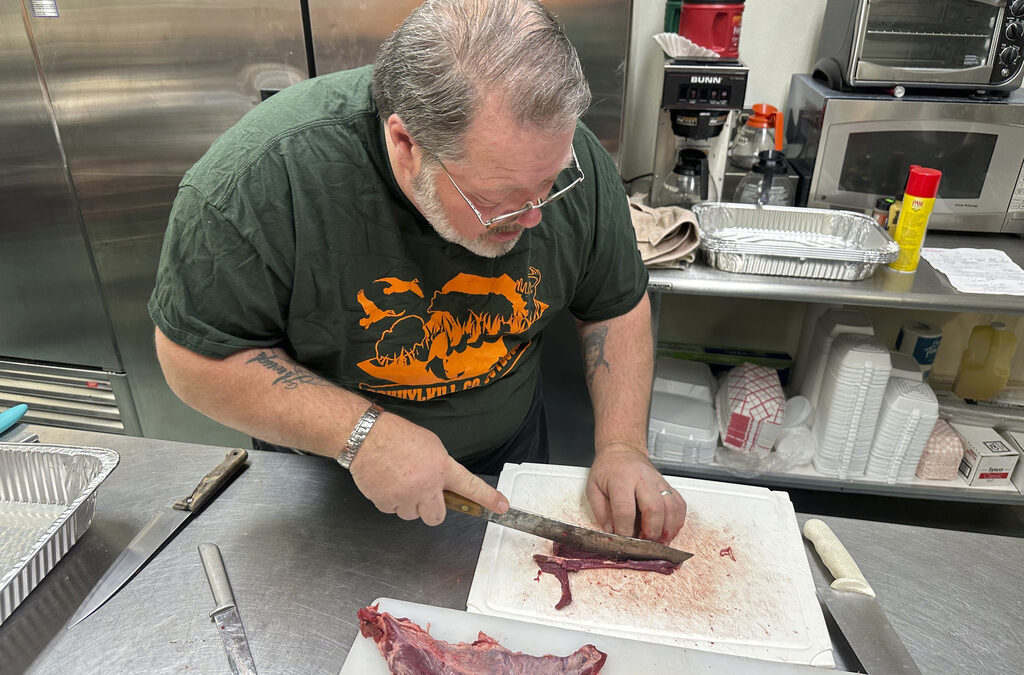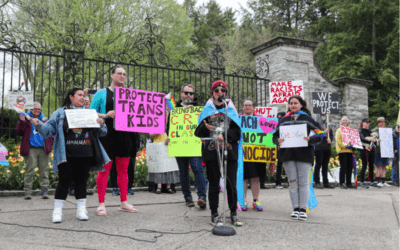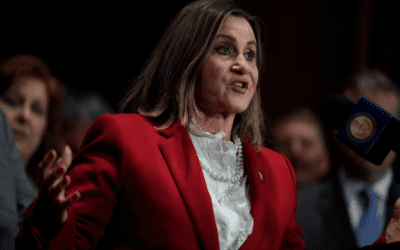
A new report outlines rural policy recommendations focused on four major tenets: protecting people’s freedom to live and work safely; investing in infrastructure; reining in corporate greed and protecting workers, small businesses, and family farmers; and creating opportunities for a better future. (Photo via Shutterstock)
Rural Americans need policies that invest in rural communities, help small farmers compete with big agri-businesses, and hold corporations accountable, according to a new report released Monday.
The 2023 Rural Policy Action Report, put together by a national collaborative of over 30 rural policy and advocacy organizations, as well as local elected officials, calls for specific investments, policy improvements, and regulatory reforms “to provide tools rural people need to succeed.”
The report includes policy recommendations divided into four key pillars focused on a host of issues that contributors said are critical to the success of rural communities, including economic policy, rural health care, education, and climate policy.
The report is the culmination of months of work from the coalition, including an April summit focused on discussing their federal and state policy priorities to help rural communities across the United States.
Here are the four pillars of the report and the policies contributors are calling for:
Protect People’s Freedom To Live and Work Safely and Without Discrimination
The report calls for protecting democracy and access to voting by passing the For the People Act, which would reduce the influence of big money in politics, ban partisan gerrymandering, strengthen ethics rules for public servants, and implement other anti-corruption measures for the purpose of fortifying our democracy. The group also called on lawmakers to make it easier to vote by mail and to restore the voting rights of formerly incarcerated people.
The report expresses support for the Fairness for Farmworkers Act, which would give farmworkers equal rights to overtime pay and minimum wage standards, and the Child Labor Exploitation Accountability Act, which would ensure US Department of Agriculture (USDA) contractors comply with labor laws, expand child labor laws to independent contractors, and increase penalties for child labor law violations.
It further calls on the government to provide more opportunities for Black farmers; recognize Native nations and honor treaties; provide rural communities that have been victims of pollution with legal pathways to hold polluters accountable; increase investments in counties with persistently high rates of poverty; and restore access to abortion care nationwide.
Invest in Foundational Infrastructure for Thriving Communities
The report’s contributors make clear that addressing rural infrastructure is key for the future of these communities.
They call for “fixing the two-tier tax system” that makes it so billionaires and some corporations pay lower taxes than middle class workers; passing the Small Business Lending Disclosure Act, which would enhance transparency on small business loans and protect businesses from predatory lending practices; and reauthorizing the Secure Rural Schools Program, which provides critical funding for schools, roads, and other municipal services to more than 700 counties across the country.
The report also calls for passing bills to address teacher and school staff shortages in rural communities; investments in early childhood education by providing universal pre-K; and the passage of the Save Rural Hospitals Act, which would preserve access to rural health care, create opportunities for rural critical care facilities, and invest in rural health care services.
The authors also call for greater assistance for farmers, expanding access to child care in rural communities, investing in rural broadband, and passing the Rural Housing Service Reform Act, which would improve the quality of rural housing programs.
Rein In Unchecked Corporate Greed and Safeguard the Power of Workers, Small Businesses, and Family Farmers To Build a Good Life
The report calls for the passage of several pieces of legislation focused on putting checks on corporate power and strengthening antitrust policy.
The contributors also highlight the urgency of passing the Farm System Reform Act, which would hold corporate agribusinesses accountable for their pollution, enact a factory farm moratorium, and help transition to more sustainable livestock production; and the American Beef Labeling Act, which would reinstate mandatory “Country of Origin Labeling” on beef and pork.
They also call for legislation to strengthen Medicare and lower prescription drug costs in order to improve rural access to medication.
The report makes clear that empowering workers is also a key priority, demanding the passage of several bills that would expand the definitions of unfair labor practices, protect workers’ rights to negotiate hours, location, and scheduling of their work, and expand workplace safety and health requirements.
Ensure Opportunities for a More Secure, Prosperous, and Sustainable Future
Pillar four of the report calls for the passage of the Climate Stewardship Act, which would provide increased funding for USDA conservation programs, renewable energy programs, and ecosystem restoration. The report also calls for the passage of bills that would protect water quality and confront the impacts of climate change on American farms, make more funding available for small farms across the country, and provide stable and reliable funding for rural public lands, county services, and education.
Finally, the report calls for the expansion of the Empowering Rural America Program (New ERA) and the Powering Affordable Clean Energy Program, which would create rural jobs and retire certain fossil fuel plants.
Previous Successes
The report also highlights policies that the Biden administration has previously implemented that benefit rural America, such as the Inflation Reduction Act (IRA).
Erik Hatlestad from Clean Up the River Environment (CURE), a rural, nonprofit organization that prioritizes the health of land and water, writes in the report how the IRA’s incentives and programs will leverage tens of billions of dollars in investment in rural electric co-ops and communities to create 90,000 jobs, reduce energy costs by up to 20%, and eliminate massive amounts of greenhouse gas emissions.
“Our success is one of many major victories that rural leaders and rural communities fought for and won in the Inflation Reduction Act,” Hatlestad wrote.
The report also highlights the passage of a Rural Playbook, which was part of the Bipartisan Infrastructure Law. The playbook was released with the intention of helping rural communities understand the “where, what, and how” of applying for federal infrastructure dollars allotted by the bill, according to the White House.
The report comes as lawmakers have yet to finalize the 2023 Farm Bill, a major source of federal investment in rural America. The 2018 Farm Bill expires on Sept. 30, the same day government funding runs out barring congressional intervention.
Senate Agriculture Chair Debbie Stabenow told Politico last week that senators aren’t seeking a farm bill extension in the ongoing fight over legislation to fund the government and avert a shutdown on Oct. 1.
While the report is focused on federal action, state lawmakers also have a role to play in supporting agricultural communities, something that some of them have prioritized in recent years.
In Pennsylvania, Gov. Josh Shapiro has been advocating for the rights of rural communities.
In August, he signed a bipartisan budget that invests in the future of Pennsylvania’s agriculture sector. These investments include increasing funding for the state Department of Agriculture by nearly 6.4% and ensuring that rural and underserved communities have access to healthy, locally grown foods.
“Feeding a rapidly growing population in the face of increasingly complex climate, marketplace, and technological challenges requires feeding our agriculture businesses through commonsense investments aimed at solutions to those challenges,” Secretary of the Pennsylvania Department of Russell Redding said in a statement. “The Department is grateful that Governor Shapiro and the General Assembly have come together to help ensure that our industry is positioned to grow, and all Pennsylvanians have the opportunity to share the benefits of our growth.”

A love letter to the working class, from Gwen Frisbie-Fulton
It started in the back seat of my family’s Jeep Cherokee, the one with the broken AC and vinyl seats that stuck to my thighs in the late summer...

Squirrel salsa, anyone? Wild game dinner hits the spot in Schuylkill County
Aside from a couple of vegetable dishes that were largely ignored, the food being served at the recent Taste of the Wild Outdoors dinner inside the...

How to support Pennsylvania’s rural communities through volunteering
Throughout Pennsylvania, organizations are working to preserve the rural way of life. Here are five to consider volunteering with. Forty-eight out...

Project 2025 would make flying more expensive and less convenient for rural and small-town Pennsylvanians
Experts have warned that ending the Essential Air Service program, as Project 2025 sets out to do — and as Donald Trump tried to do during his first...

For Rep. Susan Wild, supporting PA families includes reproductive rights and much more
Rep. Susan Wild wants to be very clear with Pennsylvanians: Donald Trump is committed to taking away women’s reproductive freedom, but he is not...




